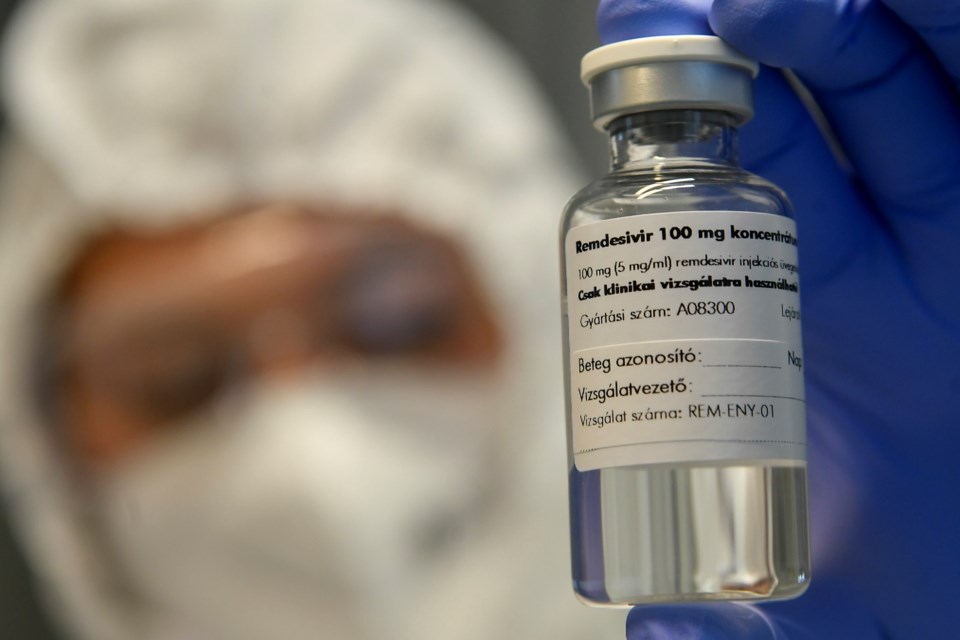A Canadian study suggests the antiviral medication remdesivir could have a "modest but significant effect" on COVID-19 patient outcomes, including decreasing the need for mechanical ventilation by approximately 50 per cent.
The study, published Wednesday in the Canadian Medical Association Journal, is billed as the largest single-country trial of remdesivir reported to date.
Results are part of a larger study called the World Health Organization Solidarity, a randomized, controlled trial evaluating remdesivir's impact on COVID-19 patients in several countries.
Researchers at the University of British Columbia and Sunnybrook Health Sciences Centre in Toronto recruited 1,282 patients at 52 hospitals between Aug. 14, 2020 and April 1, 2021. Roughly half received a 10-day course of remdesivir while the other half got the usual level of care.
Among participants not on ventilation at the start of the study, eight per cent of the remdesivir group — 46 patients — went on to require a ventilator compared to 15 per cent, or 89 patients, who received standard care.
The study also found patients on remdesivir came off oxygen and ventilators sooner.
Evidence has been mixed on the effect of remdesivir in people with COVID-19. The World Health Organization recommended against using it to treat the virus in November 2020, saying at the time "there is currently no evidence that remdesivir improves survival and other outcomes."
Remdesivir, which is administered intravenously, is a repurposed antiviral medication originally developed to treat hepatitis C.
Dr. Robert Fowler, a senior scientist at Sunnybrook and co-author of the study, said earlier recommendations against remdesivir stemmed from premature data that didn't show a statistically significant impact on COVID-19 patients.
He said the Canadian trial results could reverse opinions on the treatment, however.
"We'll probably help a number of other countries that have similar health-care systems in terms of resources to say: 'OK. ... (remdesivir) seems it has a number of positive effects," Fowler said.
"It will probably move the needle towards people having much more confidence the medication is effective for certain outcomes."
Fowler said he expects the WHO to release results from the Solidarity trial's other participating nations within the next couple of months.
The Canadian arm, funded by the Canadian Institutes of Health Research, collected more detailed data than some other countries and included patients across a range of ethnicities.
The study also looked at in-hospital mortality, which was slightly lower in the remdesivir group at 18.7 per cent, compared to 22.6 in the control group. Fowler said those figures weren't statistically significant "in absolute terms."
While the study period ended before Omicron arrived in Canada, Fowler said remdesivir is likely to have the same effect on those hospitalized with the variant.
He added that effective COVID-19 treatments are critical at this stage of the pandemic as soaring case counts have overwhelmed health-care systems across the country.
Publication of the study came two days after Health Canada authorized use of the take-home Pfizer antiviral pill Paxlovid, meant to reduce hospitalizations in those at higher risk of severe COVID-19 disease.
"It becomes critical that your next line of treatments are effective and growing," Fowler said.
"I would say, luckily, and with a lot of hard work behind it, there are an increasing number of medications, this one included ... to help patients survive and to get out of hospital sooner."
This report by The Canadian Press was first published Jan. 19, 2021.
Melissa Couto Zuber, The Canadian Press



